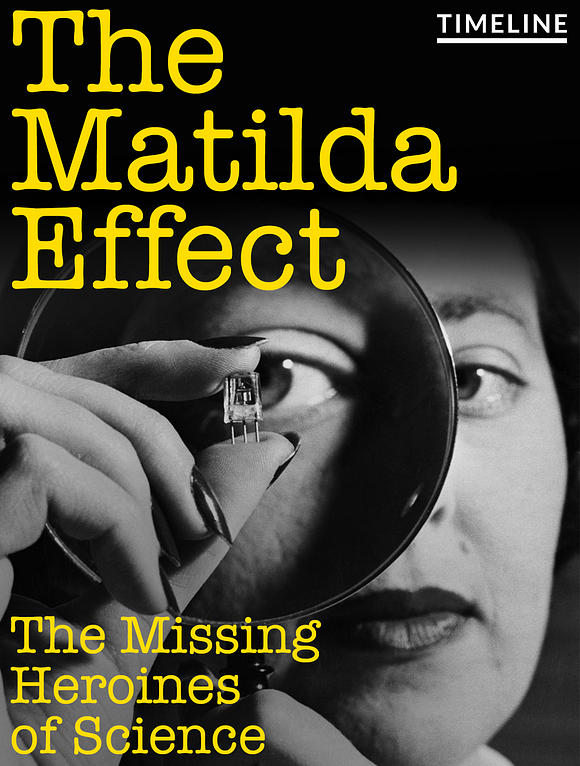The Matilda Effect
If you believe the history books, science is a guy thing. Discoveries are made by men, which spur further innovation by men, followed by acclaim and prizes for men. But too often, there is an unsung woman genius who deserves just as much credit. “The Matilda Effect” is the term coined by science historian Martha Rossiter to describe the too-common situation of a man getting credit for groundbreaking work done by a woman. In our series of that same name, Timeline takes a look at five of these scientists and the amazing, underrated work they’ve done. Produced in partnership with Timeline.com, a new publication that looks to the past to make sense of the present.
Timeline
Timeline puts our world in context, deepening the way we understand the news
Audio available
This brilliant woman pioneered nuclear technology, but her male colleague got a Nobel Prize for it
Lise Meitner is a prime example of the ‘Matilda Effect’
Audio available
This phenomenal young woman found a cure for leprosy, but the man she worked with got the credit
Alice Ball was just 24 when she did her lifesaving work
Audio available
Rosalind Franklin’s groundbreaking work was left out of DNA discovery story
All she got was sniping about her looks from the men who got the credit
Audio available
Using Folds of Velvet (Seriously), This Remarkable Woman Made Amazing Discoveries in Genetics
The only problem is that Esther Lederberg’s husband got a Nobel Prize for the advances
Audio available
This woman discovered scintillating deep-space objects, and her male colleague got the Nobel Prize
Jocelyn Bell Burnell’s skills on the radio telescope were on point


